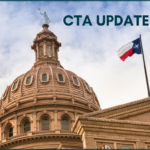For employers in the Seventh Circuit, the battle against FMLA abuse just got a little tougher. In Ballard v. Chicago Park District, the Seventh Circuit adopted an extremely broad reading of what it means to take leave to care for the employee’s covered family member. Specifically, an employee’s vacation to Las Vegas with her ill mother was deemed covered by the FMLA. That’s right: vacation to Las Vegas was covered by the FMLA.
In Ballard, the plaintiff traveled with her mother to Las Vegas to fulfill her mother’s end-of-life wish and not to receive medical treatment. She did this even though her request for FMLA leave was denied by Chicago Park District (CPD), her employer. While in Las Vegas, the two ladies engaged in several recreational activities, and plaintiff continued to provide the basic caretaking functions she provided for her mother at home, like administering medication and preparing her for bed. Upon her return home, CPD terminated plaintiff’s employment for accumulating too many unexcused absences. Plaintiff then sued CPD alleging that her trip to Las Vegas was covered by the FMLA.
The Seventh Circuit agreed. It reasoned that the regulations do not impose any sort of geographical limitation on where the caretaking of an ill family member must take place. The court summed up its reading of the regulations like this:
“The relevant rule says that, so long as the employee attends to a family member’s basic medical, hygienic, or nutritional needs, that employee is caring for the family member, even if that care is not part of ongoing treatment of the condition. Furthermore, none of the cases explain why certain services provided to a family member at home should be considered ‘care,’ but those same services provided away from home should not be.”
So on top of the fact that plaintiff’s trip to Las Vegas was still within the scope of the FMLA, it also did not matter that the basic caretaking functions she administered to her mother were not part of ongoing treatment of the condition. Her mother was terminally ill, and because plaintiff was tucking her in at night and making sure she took her medicine, her trip was covered by the FMLA.
What does this mean for employers operating in the Seventh Circuit? First, evaluate very closely any request for FMLA leave to care for a sick family member. Just because it sounds like a vacation does not mean it is not covered. Second, do not forget the tools you have at your disposal to combat FMLA abuse. The medical certification process is your friend. The more broadly courts read the FMLA, the more important it is to know the tools you have at hand to combat abuse. Finally, use the expertise of counsel when navigating the treacherous waters of FMLA leave.
For more information about this or any related legal matter, please contact any member of the KDDK Labor & Employment Law Practice Team.




